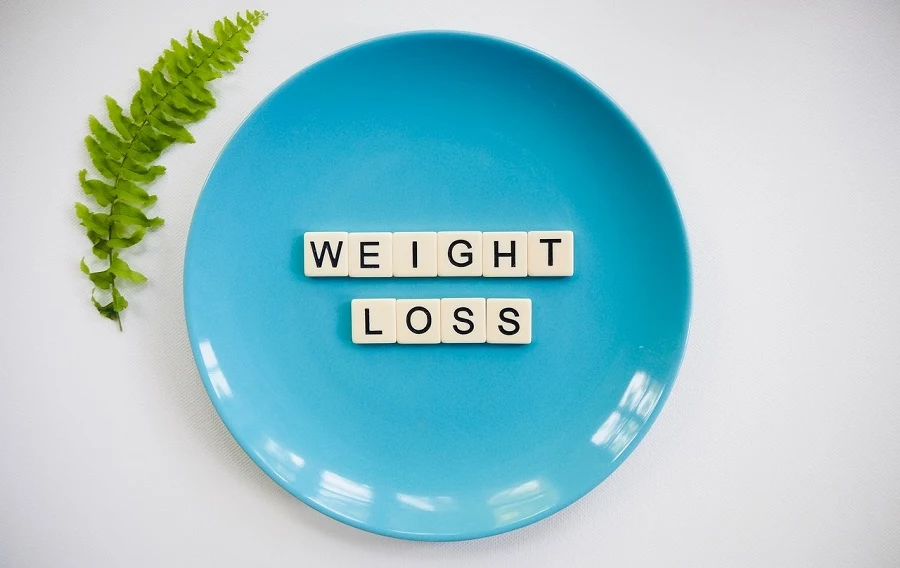Calorie Deficit to Lose Weight: Burning more calories than a person consumes in a day is referred to as a “Calorie Deficit”. A calorie deficit is a key to healthy, effective and fast weight loss.
If you want to create a calorie deficit in a healthy manner and lose extra weight quickly, follow these tips and tricks to burn more calories and maintain a healthy weight.
 |
| Calorie Deficit to Lose Weight. |
How to Cut Calories to Lose Weight Safely: Calorie Deficit Ideas, Proceedings, and Safety Tips
The first thing that comes to one's mind after reading the word diet is weight loss. Although different diets can be used for different health purposes, the demand for quick and effective weight loss has somehow made diet-related to weight loss only.
There are innumerable diets on the market, all promising the fastest and most effective weight loss. Such diets claim to have some hidden formulas that the average human brain fails to decipher. Some claim that it is the magical combination of banana and milk that will help you lose weight, and some say that it is the complete removal of meat.
More often than not, diets that actually show positive results on weight loss have one thing in common; a calorie deficit.
A calorie deficit is a key to healthy, effective, and fast weight loss. The science behind it is simple; if you consume fewer calories than you burn, your body will automatically burn the stored fat to fill the calorie deficit, leading to weight loss. Special weight loss diets either offer a calorie deficit or trick your body into feeling that it has a calorie deficit.
The Right Way To Go For A Calorie Deficit
You can not achieve an optimum calorie deficit until you go about it in the right way. Simply shifting on one bread from two won't do much. It for sure will reduce your calorie intake, but if you cut your calories wisely, you will get maximum benefits.
Count Your Calories
If you want to cut calories, you should know how much you need to sustain your body and how much you can skimp on. The internet is inundated with formulas that will help you know your optimum calorie requirements. Keep in mind that different formulas tell you different things.
Your daily caloric requirement depends on your age, height, gender, weight, physical activity and health conditions. You can use the BMR (basal metabolic rate) to determine your daily caloric requirements. The general formula used to calculate BMR is:
- Adult male: 66 + (6.3 x bodyweight in lb) + (12.9 x height in inches) – (6.8 x age in years) = BMR
- Adult female: 655 + (4.3 x weight in lb) + (4.7 x height in inches) – (4.7 x age in years) = BMR.
You can incorporate your activity level by simply multiplying the following number by the BMR you get from the formula mentioned above.
- Sedentary: little or no exercise = BMR x 1.2
- Minimally active: 1–3 days per week of exercise or activity = BMR x 1.375
- Moderately active: 3–5 days per week of moderate activity or sports = BMR x 1.55
- Very active: 6–7 days per week of hard exercise = BMR x 1.725
- Extra active: athletes who train twice per day, for example, = BMR x 1.9.
Subtract The Calories
The BMR is actually a count of the calories your body requires to maintain its basic metabolic functions.
Taking as many calories as your BMR suggests will help you maintain your weight, but you will have to cut your calories to lose weight.
A rule of thumb is to cut a maximum of 500-700 kcals from your BMR. You should take the rest of your calories from all food groups and form a balanced diet. That balanced diet must be guided by a professional nutritionist.
Planning A Diet
Now is the time to plan your diet around the calories you have devised. A nutritionist can best do this, but there is no harm in understanding what a professional will be doing for you.
A calorie deficit usually promises weight loss, but stubborn weight may require some unique food combinations along with a calorie deficit.
Top nutritionists can best guide you about the particular diet you should go for. You might require special diets like keto, paleo, or DASH diet.
Exercising
Diet alone can do wonders for your weight loss, but exercise holds immense importance too. Even on a calorie-deficit diet, you can not lower your calorie intake below a certain level. If you want to seek instant and effective weight loss, you will need to exercise to burn the extra calories.
- In case you don’t want your joints to feel overwhelmed, you can start walking daily. Walking is a kind of exercise that doesn’t need equipment and you can go out on a regular basis without getting yourself stressed.
- Jogging and running can also help you burn lots of calories and lose weight. Though jogging and running aren’t two different things, there’s a minor difference in speed while running.
Never consider exercise as an alternative to a calorie deficit diet. Remember the 70-30 rule. Diet plays a 70% role in weight loss, and exercise is responsible for the remaining 30%. The best exercises for effective weight loss are cardio, yoga, weight lifting, and T-rex.
Keeping A Track
All your weight loss diets will be of no use if you don't keep track of what you are doing and how far you have reached in achieving your goal.
Keeping track of maintaining a calorie deficit is even more important. Your caloric requirements will change as you start losing weight. Time after time, you will have to calculate your BMR, reduce your calories and devise a diet and exercise plan accordingly. To help you do all this, you should consult a nutritionist.
